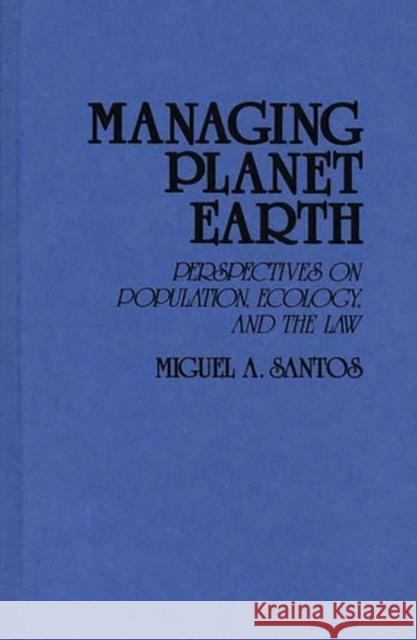Managing Planet Earth: Perspectives on Population, Ecology, and the Law » książka
Managing Planet Earth: Perspectives on Population, Ecology, and the Law
ISBN-13: 9780897892162 / Angielski / Twarda / 1990 / 184 str.
Society cannot increase beyond its ability to acquire natural resources or to dispose safely of pollutants. One need not be an ecologist or environmental scientist to understand the dangers implicit in an uncontrolled degradation of the environment. Calculating how many people each individual nation should have and determining the means by which politically various populations will be controlled calls for difficult decisions. This book provides a concrete, easily understood, and realistic analysis of the scientific and legal dimensions of environmental stability. Miguel A. Santos outlines the current international ecological crises and defines them as the most serious threat to international world order and ecological stability. The book is divided into five sections beginning with an examination of the ecological characteristics of human population and a discussion of population policies in developing and developed nations. This section is followed by the construction of an analytic framework for the interaction of society with the environment. Further chapters provide an overview of natural resources and pollution and the criteria for determining the earth's carrying capacity for humans. The final section considers the problems and prospects of international law and environmental protection. Although written for ecologists, environmental scientists, demographers, political scientists, economists, and lawyers, this book is not limited to them. Anyone interested in the relationship between the environment and society will find this book instructive and provocative.











